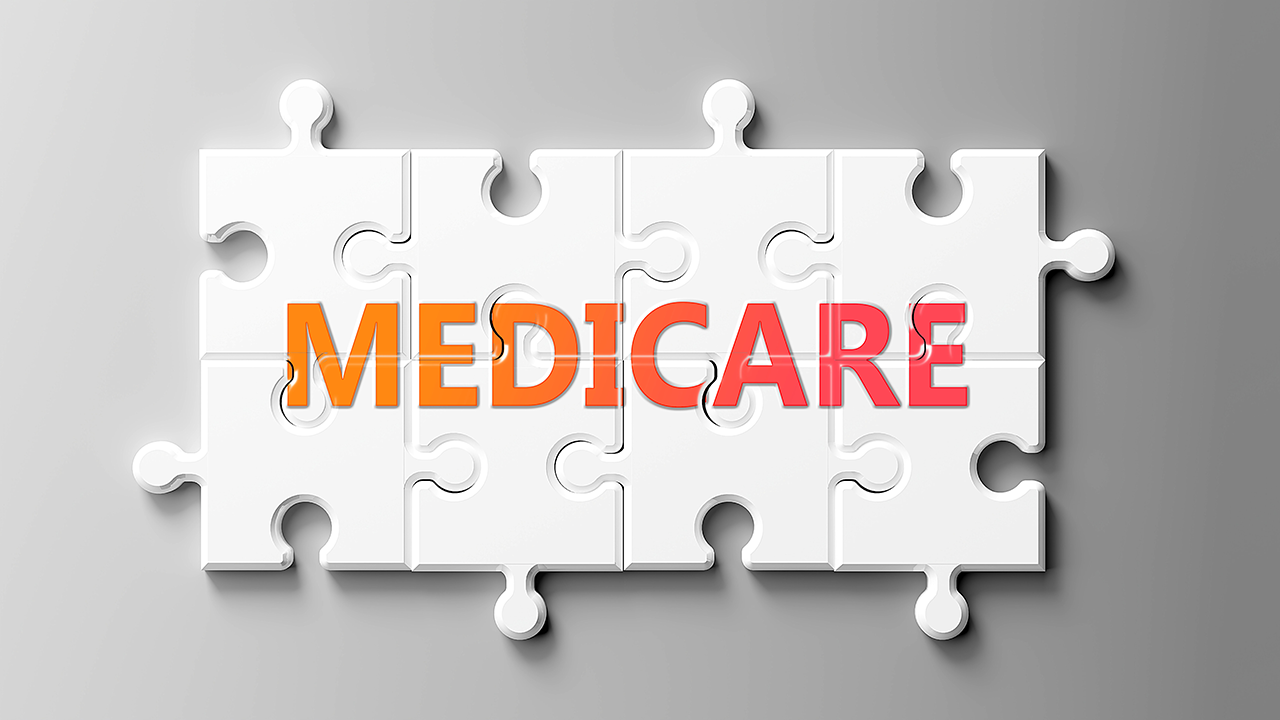What Are the Four Types of Medicare?
Whether you are newly enrolling in Medicare or want to change your plan during an open enrollment period, it can be challenging to complete all the necessary decisions. However, health care can be one of your highest costs as your age increases, so educating yourself about Medicare can save you thousands of dollars in out-of-pocket costs.
Original Medicare (Part A and Part B) will pay approximately 80% of your approved costs, including clinics (outpatient), hospitals (inpatient), and medical procedures. Some Medicare beneficiaries are satisfied with this offering, while others seek additional coverage for the remaining out-of-pocket costs.
Medicare is divided into four parts, A, B, C, and D. Each part covers a separate area of medical services. While you may not need all four parts, it’s essential to know what is included in each part to make the best choice for your particular situation.
Medicare Part A: Hospital Insurance (Inpatient)
Medicare Part A covers all associated hospital costs and is 50% of the Original Medicare coverage. When you enroll in Medicare, you automatically receive Part A.
While most people who paid Medicare taxes through their employment will qualify for premium-free Part A coverage, not everyone will be eligible for free coverage. Medicare Part A premiums can range from $0 to $471 per month. Even if you qualify for the free monthly premium, you will most likely be subject to a deductible.
Medicare Part A will pay for:
- Inpatient hospital care
- Post-hospital stay care in a skilled nursing facility
- Home health care services
- Nursing home (not custodial or long-term care)
- Hospice
- Short-term respite
- Physical therapy
- Occupational therapy
Medicare Part B: Medical Insurance (Outpatient)
Medicare Part B is 50% of Original Medicare and acts as general medical insurance for diagnostic and treatment purposes. When you enroll in Medicare, you automatically receive Part B. It covers preventative care, vaccines, and early-detection screenings.
Medicare Part B will pay for:
- Wellness visits with your doctor (annually)
- Mental health services
- Medical equipment (diabetes supplies, wheelchairs, etc.)
- Flu shots
- Diabetes screenings
- Mammograms
- Ground ambulance transport
Medicare Part C: Medicare Advantage (Alternative to Part A and Part B)
Medicare Part C plans are considered an all-in-one alternative to Original Medicare (Part A and Part B). Part C is also referred to as Advantage Plans or MA Plans.
Medicare Advantage Plans are available through private companies. These plans are all approved by the original Medicare. You can have Part C and have Part A, B, and D or combine Part C with A, B, or D. The benefit of Medicare Advantage plans is that they have fewer out-of-pocket costs and an annual cap limit.
Part C covers a broader range of services compared to Original Medicare. Medicare Advantage Plans cover dental, hearing, fitness, and vision. You can also take advantage of transportation services to doctor visits, gym membership discounts, over-the-counter drugs, and alternative treatments such as chiropractic and acupuncture. Part C may even cover specific conditions for qualified chronically ill members.
Part D is also often available with Medicare Advantage Plans. You will be dis-enrolled from Part C and offered Original Medicare if you use a Medicare Advantage HMO or PPO and join a separate Medicare Prescription Drug Plan.
Medicare pays a fixed amount to private companies offering Part C, and the companies must follow any rules Medicare enforces. Since private companies run Medicare Advantage Plans, your out-of-pocket costs may vary from member to member and year to year.
Other rules that can fluctuate include whether or not you need a referral to make an appointment with a specialist and if you have to choose in-network doctors or health facilities.
Medigap Policy
Medigap policies are not compatible with Medicare Part C. Medigap will not pay for any costs you have incurred through your Medicare Advantage Plan, including but not limited to copays, deductibles, and premiums.
A Medigap policy can protect you if you join a Medicare Advantage Plan for the first time and don’t like your plan. These special rights are available to you as long as you return to Original Medicare within 12 months of joining. However, always check with your Medicare Advantage Plan to make sure you can dis-enroll.
However, a Medigap policy can’t include prescription drug coverage, so you will still have to sign up for Medicare Part D. Some states provide additional rights regarding Medigap policies.
Editor note: If you enroll in a Medicare Advantage Plan, you should only buy a Medigap policy if you plan to switch back to Original Medicare. It is illegal for anyone to sell you a Medigap policy with other intentions in mind. You can contact your State Insurance Department if you feel someone is trying to scam you.
Medicare Part D: Prescription Drug Coverage
Medicare Part D is a prescription drug plan (PDP) customized to your health needs. However, prescription coverage is a standard feature for most public and private health insurance, Medicare segments prescription drug coverage into Part D.
While the add-on is an additional cost for most, people who do not take prescription drugs can save money by opting out. If you take one or multiple prescription drugs, always check Part D’s formulary options, which list all the medicines each plan covers.
All Part D plans are required to offer a standard level of coverage that Medicare determines. Prescription drugs that are under the umbrella of standard coverage include:
- Anticancer
- Anticonvulsants
- Antidepressants
- Antipsychotics
- Antiretrovirals
- Immunosuppressants
Editor note: While you can enroll in Part D with Original Medicare (Part A and Part B), you can also add-on drug coverage via Medicare Advantage (Part C).
FAQs
Where can I view plans and enroll in Medicare?
You can view various Medicare plans and enroll on the US government’s website: Medicare.gov.
Who can I contact if I have a question about Medicare?
You can contact your state health insurance assistance program (SHIP) or speak with a licensed Medicare professional via phone at 844-973-2196.
Are there different levels of Medicare coverage?
Yes. You can enroll in Original Medicare (Part A and Part B) or choose a Medicare Advantage Plan (Part C). Optional coverage is available through Part D (prescription drug coverage) and Medicare Supplement Insurance (Medigap).
According to the National Committee to Preserve Social Security & Medicare, most Medicare beneficiaries enroll in Original Medicare (Part A and Part B). In contrast, less than half enroll in Medicare Advantage (Part C).
How do you choose a Medicare plan?
When seeking a Medicare plan, consider any out-of-pocket costs, monthly premiums, deductibles, provider availability, and extra benefits. You may also consider your current and future health and any financial concerns.
If Medicare Advantage (Part C) or Part D is on your list of considerations, take some time to compare. If you are still overwhelmed by the choices among the four plans, you can always seek help from a licensed Medicare professional in your coverage area.




